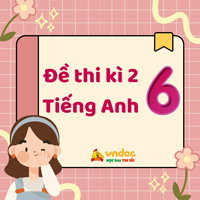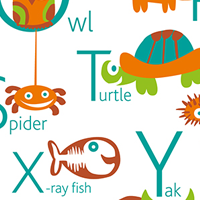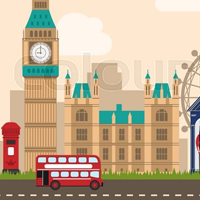Ngữ pháp Unit 4 lớp 8 Our customs and traditions
Ngữ pháp tiếng Anh 8 unit 4 Our customs and traditions
- I. Cấu trúc và cách dùng should trong tiếng Anh
- II. Cấu trúc và cách dùng Must trong tiếng Anh
- III. Cấu trúc và Cách dùng Have to trong tiếng Anh
- IV. Cách phân biệt MUST và HAVE TO đơn giản
- V. Cấu trúc và Cách dùng Ought to/ Need trong tiếng Anh
- VI. Bài tập ngữ pháp unit 4 lớp 8 Our customs and traditions có đáp án
I. Cấu trúc và cách dùng should trong tiếng Anh
1. Chúng ta dùng "should" với động từ nguyên mẫu (do, go...):
I should do a lot of homework tonight.
Dùng "should" giống nhau cho tất cả các ngôi:
I/ you/ he/ she/ it/ we/ they should come.
2. Thể phủ định là "shouldn't"
You shouldn't work all day.
They shouldn't spend so much money.
3. Chúng ta dùng "I should" hoặc "we should" để đề nghị những điều tốt chúng ta nên làm:
I should go home. It's midnight.
We should invite them to our wedding.
Chúng ta dùng "I" hoặc "we shouldn't" để nói về những việc không nên làm vì chúng không có lợi cho chúng ta:
I shouldn't eat so much food.
Chúng ta dùng "should/ shouldn't" để đưa ra lời khuyên:
You should look for a better place to eat.
You shouldn't swim in this river.
"Should" được dùng có tác dụng không mạnh mẽ bằng "must" hoặc "have to". Hãy so sánh:
You should drink more milk. (It's a good idea.)
"You must drink more milk," said the doctor. (It's very important.)
4. Chúng ta sử dụng dạng câu hỏi "should I/ we ...?" để xin lời khuyên:
What should I say to Fred?
I need a new passport. Where should I go?
5. Chúng ta có thể nói "I think we should", "I don't think you should" v.v... khi đưa ra ý kiến:
I think we should get two tickets.
I don't think you should believe everything he says.
Chúng ta thường không nói: I think you shouldn't
6. Chúng ta có thể sử dụng "do you think I should ...?" để xin lời khuyên:
Tom hasn't replied to my letter. Do you think I should phone him?
What do you think I should send Alisa for her birthday?
* Lưu ý:
SHOULD HAVE P2 / SHOULDN'T HAVE P2: diễn tả hành động lẽ ra nên được thực hiện trong quá khứ nhưng đã không được thực hiện (à điều kiện không thật).
Ví dụ: You should have thanked her for her help. (but you didn't thank her).
II. Cấu trúc và cách dùng Must trong tiếng Anh
- must có nghĩa là phải, dùng diễn tả một yêu cầu bắt buộc.
Ex: I haven’t got much time. We must hurry. (Tôi không có nhiều thời gian. Cliúng ta phải nhanh lên.)
- must: chắc hẳn là... diễn tả sự chắc chắn của một nhận định.
Ex: You have worked hard all day. You must be tired. (Bạn làm việc cả ngày. Nên bạn mệt rồi.)
Lưu ý:
- must not viết tắt là mustn’t.
- must not diễn tả sự cấm đoán, không được phép làm, nghiêm trọng hơn cannot nhiều.
mustn’t + V bare infinitive... = Don’t + V bare infinitive...
Ex:
You mustn’t wear shoes in your house.
= Don’t wear shoes in your house.
Bạn không được mang giày vào nhà. (lệnh cấm)
You must not swim in that lake. It's full of crocodiles.
= Don’t swim in that river.
Không được bơi dưới cái hồ đó. Dưới đó toàn là cá sấu.
- must đồng nghĩa với have to. Must là động từ khiếm khuyết, không có dạng quá khứ, tương lai. Have to là động từ thường, có đủ các dạng. Vì vậy khi cần diễn đạt những ý nghĩa thường dùng với must trong quá khứ hay tương lai, ta dùng have to.
* Lưu ý: Mustn't + V: diễn tả sự ngăn cấm
Ví dụ: You mustn't smoke in hospital.
III. Cấu trúc và Cách dùng Have to trong tiếng Anh
1. Cấu trúc:
(+) Thể khẳng định (Affirmative form)
S + have to/has to + infinitive +...
Ex:
I have to clean the house this week. (Tôi phải dọn dẹp nhà cửa trong tuần này.)
She has to wash my clothes. (Cô ấy phải giặt quần áo của mình.)
(-) Thể phủ định (Negative form)
S + don’t/doesn’t have to + infinitive +...
Lưu ý: not have to = không nhất thiết phải (tùy chọn)
Ex: She doesn’t have to wear a company uniform. (Cô ấy không nhất thiết phải mặt đồng phục công ty.)
You don't have to wear a shirt if you don't want to. (Nếu bạn không muốn, bạn không nhất thiết phải mặc áo sơ mi.)
(?) Thể nghi vân (Interrogative form)
Do/ Does + S + have to + infinitive +...
Ex:
Do we have to follow the tradition of cleaning the house before Tet? (Chúng ta có phải theo truyền thống dọn dẹp nhà cửa trước Tết không?)
2. Cách dùng:
- Have to có nghĩa là phải mang tính chất làm vì nghĩa vụ, nhiệm vụ, bổn phận do nguyên nhân bên ngoài.
Ex:
I have to wash clothes this week. (Tuần này tôi phải giặt quần áo.)
- Have to còn diễn tả một việc nào đó ngoài ý muốn mà chúng ta phải làm.
Ex: Pupils have to wear a red scarf when they go to school. (Học sinh phải đeo khăn quàng đỏ khi họ đến trường.)
* Lưu ý: có thể dùng have got to + V, need to + V, be supposed to V với ý nghĩa tương đương.
* Lưu ý: ở thể phủ định, bên cạnh don't have to + V, don't need to + V còn có thể dùng needn't + V. Trong trường hợp này, needn't hoạt động như một modal verb và không cần chia theo chủ ngữ.
Ví dụ: She needn't attend this English course because she did her MBA course in Australia.
IV. Cách phân biệt MUST và HAVE TO đơn giản
+ MUST được dịch là “phải”, diễn tả một sự bắt buộc hoặc một mệnh lệnh (thường do bên ngoài tác động).
Ví dụ: You must go to school at 7.00 am.
+ MUST được sử dụng để kết luận một điều đương nhiên, chủ quan theo ý nghĩ của người nói cho rằng nó phải như vậy.
Ví dụ: She looks so sad. She must be punished by her teacher.
+ HAVE TO diễn tả nghĩa “phải” do xuất phát từ chủ quan người nói.
Ví dụ: I have to brush my teeth twice a day.
+ MUST chỉ dùng được cho thì hiện tại hoặc tương lai, nhưng nếu muốn diễn tả ý nghĩa “phải” trong quá khứ, ta phải sử dụng HAVE TO.
Ví dụ: I had to go to the dentist yesterday.
Tuy vậy, đối với câu phủ định, MUST và HAVE TO mang ý nghĩa hoàn toàn khác nhau:
+ “MUSTN'T” một điều cấm, lệnh cấm không được làm gì đó.
Ví dụ: You mustn't drive. You are prohibited to drive. You are not allowed to drive.
+ “DON'T HAVE TO” diễn tả một việc không cần thiết/không bắt buộc.
Ví dụ: You don't have to drive. You are not obliged to drive (but you can if you want to).
V. Cấu trúc và Cách dùng Ought to/ Need trong tiếng Anh
1. Ought to
OUGHT TO + V: diễn tả sự cần thiết phải thực hiện hành động
Ví dụ: You ought to report to her at work.
* Lưu ý: OUGHT TO thường không dùng ở dạng phủ định.
OUGHT TO HAVE P2: diễn tả hành động lẽ ra phải được thực hiện trong quá khứ nhưng đã không được thực hiện (à điều kiện không thật).
Ví dụ: You ought to have done your homework yesterday (but you didn't do it).
2. Need
NEED HAVE P2 / NEEDN'T HAVE P2: diễn tả hành động lẽ ra cần được thực hiện trong quá khứ nhưng đã không được thực hiện (à điều kiện không thật).
Ví dụ: You need have brought your raincoat. It is raining now (you didn't bring your raincoat).
* Lưu ý: phân biệt didn't need to và needn't have P2: didn't need to diễn tả việc bạn biết là không cần làm và bạn có thể lựa chọn làm hoặc không làm; needn't have P2 diễn tả việc bạn không biết là bạn không cần làm nhưng bạn đã làm.
Ví dụ: We didn't need to work overtime yesterday because we still had a lot of time for our project.
We needn't have taken so much food for our picnic. There was a very good cafeteria there.
VI. Bài tập ngữ pháp unit 4 lớp 8 Our customs and traditions có đáp án
A. Hoàn thành những câu sau, sử dụng "should" hoặc "should't" và những từ trong ngoặc đơn ( ).
You shouldn't study (You/ study) so hard. Have a holiday.
I enjoyed that play. We should go (We/ go) to the theatre more often.
1. ____________________(You/ park) here. It's not allowed.
2. What________________ (I/ cook) for breakfast this morning?
3. ________________(You/ wear) a raincoat. It's raining outside.
4. _________________(You/ smoke). It's bad for you.
5. ________________(We/ arrive) at the airport two hours before the flight
6. ________________(I/ send) now or later?
7. Do you think________________ (I/ apply) for this post?
8. What do you think_____________(I/ write) in this space on the form?
9._______________ (I/ eat) any more cake. I've already eaten too much.
10. This food is awful._____________(We/ complain) to the manager.
11. Which dress do you think______________ (I/ buy)?
B. Frank đang nấu ăn. Hãy đưa ra vài lời khuyên hữu ích. Sử dụng "you should" hoặc "you shouldn't" và những ghi chú trong hộp.
|
You shouldn't leave the beef in the oven for more than one hour.
- ___________ the onions as thin as possible.
- _____________ fresh herbs and fresh vegetables.
- ___________ in too much salt and chilies.
- ___________ until the water boils before you put the vegetables into it.
- ______________ the oven before you put the beef in.
- ____________ the beef into a lot of equal slices.
C. Choose the correct answer.
1. Your hair’s too long. I think you _________ get it cut.
A. don’t have to B. have to C. should D. shouldn’t
2. You _________ speak when the teacher is speaking.
A. needn’t B. can’t C. don’t have to D. musn’t
3. John can’t come because he _________ work tomorrow.
A. should B. can C. must D. has to
4. You _________ hand in your homework on Tuesday or your mark will be zero.
A. shouldn’t B. must C. mustn’t D. should
5. She ___________ an umbrella. I’m sure it isn’t going to rain.
A. has to take B. should C. doesn’t have to take D. can’t take
6. I think you should _________ to the doctor. You look terrible.
A. to go B. go C. going D. went
7. I don’t think you’ve understood this. _________ look at Unit 12 again.
A. I think you should B. You shouldn’t C. If I were you D. You musn’t
8. In many countries, you _________ wear a seat belt in the car - it’s the law.
A. must B. should C. have D. will
9. Sorry, but my train is at 6.00. I _________ leave now.
A. shouldn’t B. have to C. mustn’t D. ought to
10. You _______ eat squid, duck, or shrimp during Tet because they are seen as bad symbols.
A. have to B. should C. don’t have to D. shouldn’t
D. Hoàn thành các câu dưới đây với thể khẳng định hoặc phủ định của “must, have to, has to"
1. Students___________ look at their notes while they are taking the exam.
2. My mother has a terrible headache so she __________ stop working today.
3. There is an accident and the traffic is blocked. We _________ to stay here for a while.
4. You ____________ do that, Marry, I’ll do it later.
5. He __________ wait in line like anyone else
6. You __________ light a naked flame near the gas station.
7. While operating a motor vehicle, you ___________ drink and drive.
8. You __________ skip classes too often or you will not pass the final exam.
9. They _________ work hard and earn a lot of money. They want to move to a larger apartment.
10. Mr. Smith ____________ drive to work because his company is near his house.
E. Complete the sentences with a form of “have to” or “should”. Make the verbs negative when necessary.
1. You _______ come with me if you don’t want to. I’ll go on my own.
2. If you need some help with your homework, you _______ go to the library.
3. If you have a ticket, you ________ queue. You can go straight in.
4. You _____ tell lies. It’s wrong.
5. Nick works too much. I think he ________ take it easy.
6. Your hair’s too long. I think you ______ get it cut.
7. Your clothes are dirty. You ________ wash them.
8. I’m going to bed. I ________ get up early tomorrow.
9. I’d like to meet your best friend. You ______ invite him/ her round.
10. I _____ tell my parents where I am, then they don’t worry.
Đáp án
A. Hoàn thành những câu sau, sử dụng "should" hoặc "shouldn't" và những từ trong ngoặc đơn.
1 - You shouldn't park;
2 - should I cook;
3 - You should wear;
4 - You shouldn't smoke;
5 - We should arrive;
6 - Should I send;
7 - I should apply;
8 - I should write;
9 - I shouldn't eat;
10 - We should complain;
11 - I should buy;
B. Frank đang nấu ăn. Hãy đưa ra vài lời khuyên hữu ích. Sử dụng "you should" hoặc "you shouldn't" và những ghi chú trong hộp.
____You should cut_______ the onions as thin as possible.
_______You should use______ fresh herbs and fresh vegetables.
______You shouldn't put_____ in too much salt and chilies.
______You should wait_____ until the water boils before you put the vegetables into it.
_______You should heat_______ the oven before you put the beef in.
___You should cut_________ the beef into a lot of equal slices.
C. Choose the correct answer.
1 - C; 2 - D; 3 - C; 4 - B; 5 - C;
6 - B; 7 - A; 8 - A; 9 - B; 10 - D;
D. Hoàn thành các câu dưới đây với thể khẳng định hoặc phủ định của “must, have to, has to"
1. Students______mustn’t_____ look at their notes while they are taking the exam.
2. My mother has a terrible headache so she _____has to_____ stop working today.
3. There is an accident and the traffic is blocked. We ___have______ to stay here for a while.
4. You _____don't have to_______ do that, Marry, I’ll do it later.
5. He _____has to_____ wait in line like anyone else
6. You _____mustn’t_____ light a naked flame near the gas station.
7. While operating a motor vehicle, you ____mustn’t_______ drink and drive.
8. You _____mustn’t_____ skip classes too often or you will not pass the final exam.
9. They ______must___ work hard and earn a lot of money. They want to move to a larger apartment.
10. Mr. Smith _______doesn’t have to_____ drive to work because his company is near his house.
E. Complete the sentences with a form of “have to” or “should”. Make the verbs negative when necessary.
1. You ___don’t have to____ come with me if you don’t want to. I’ll go on my own.
2. If you need some help with your homework, you ___should____ go to the library.
3. If you have a ticket, you ____don’t have to____ queue. You can go straight in.
4. You ___shouldn’t__ tell lies. It’s wrong.
5. Nick works too much. I think he ___should_____ take it easy.
6. Your hair’s too long. I think you ___should___ get it cut.
7. Your clothes are dirty. You ____should____ wash them.
8. I’m going to bed. I ____have to____ get up early tomorrow.
9. I’d like to meet your best friend. You ___should___ invite him/ her round.
10. I __have to___ tell my parents where I am, then they don’t worry.
Ngữ pháp Tiếng Anh 8 Unit 4: Our customs and traditions giới thiệu cho các em học sinh các cấu trúc và cách dùng cụ thể của động từ khuyết thiếu Should, Have to, Must, Ought to và Need trong tiếng Anh và các bài tập ngữ pháp tiếng Anh đi kèm đáp án để các em có thể nắm vững phần ngữ pháp tiếng Anh unit 4 Our customs and traditions lớp 8 này hiệu quả.
Trên đây là Cấu trúc tiếng Anh Unit 4 Our customs and traditions lớp 8 mới. Mời bạn đọc tham khảo thêm nhiều tài liệu ôn tập Tiếng Anh lớp 8 cả năm khác như: Để học tốt Tiếng Anh lớp 8, Đề thi học kì 1 lớp 8, Đề thi học kì 2 lớp 8, Bài tập Tiếng Anh lớp 8 theo từng Unit trực tuyến,... được cập nhật liên tục trên VnDoc.com.
Xem thêm: Bài tập Tiếng Anh lớp 8 Unit 4 nâng cao MỚI
Trắc nghiệm từ vựng Unit 4 lớp 8: Our customs and traditions MỚI
Bên cạnh việc tương tác với VnDoc qua fanpage VnDoc.com, mời bạn đọc tham gia nhóm học tập tiếng Anh lớp 8 cũng như tiếng Anh lớp 6 - 7 - 9 tại group trên facebook: Tiếng Anh THCS.
















